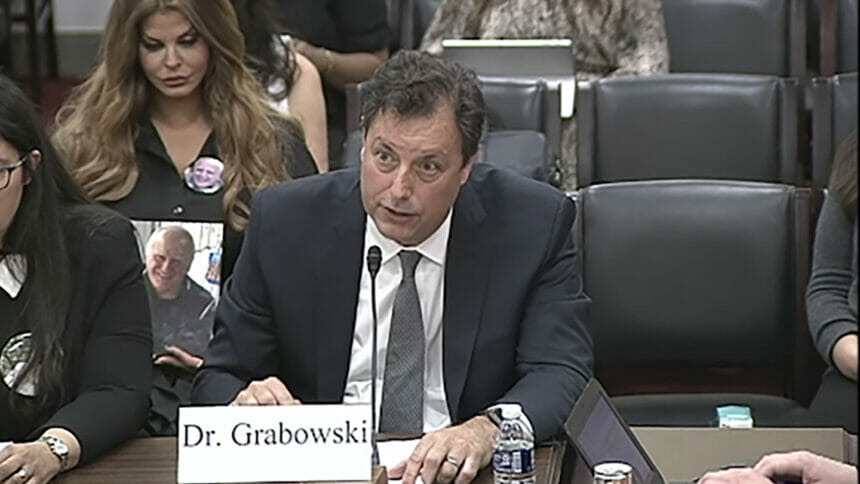
Three years after the height of the pandemic forever transformed nursing homes, a new Congressional panel took a stab Wednesday at finding someone to blame for deadly COVID-19 miscalculations.
A hearing before the Select Subcommittee on the Coronavirus Pandemic was billed by Republican Chairman Brad Wenstrup (OH) as an “after-action review” to determine policies for the next pandemic. But a parade of witnesses, most of whom had loved ones die of COVID in a nursing home, simply recounted stories of unfortunate deaths similar to those shared in a series of hearings before a previous COVID subcommittee.
This time around, however, the blame was largely directed toward Democratic governors who required nursing homes to take COVID-positive patients against federal guidance. The Department of Justice previously declined to formally investigate several states over their use of such policies.
“These must-admit orders led to the deaths of tens of thousands of elderly Americans,” Wenstrup said Wednesday. “We hope this hearing is step one to providing accountability to the thousands of American families seeking answers.”
“We’re not here to Monday morning quarterback or to negate the difficulty of decision-making during an unprecedented pandemic. But once science is clear, those who made wrong decisions must be made accountable. We’re holding this hearing today to look back to help prepare for a future pandemic.”
Wenstrup noted that more than 15,000 New York nursing home residents died from COVID, with another 12,500 dying in Pennsylvania and 9,000 in New Jersey.
But ranking member Raul Ruiz (D-CA) said that some of those deaths were no doubt due to regulations that had been relaxed in the months prior to the pandemic, as well as to facilities being unequipped to handle COVID patients weeks after cases first occurred in the US.
“We must develop forward-looking policies that promote transparency in data and strengthen protections in nursing homes to mitigate current and future threats,” he said. “We must also look to rehabilitate nursing home systems weakened by the previous administration’s efforts to roll back regulations that established guardrails for quality of care and staffing levels, leaving those facilities under-resourced and unprepared to combat a deadly virus.”
Witnesses, including Fox News national meteorologist Janice Dean, who lost her in-laws to nursing home COVID cases, asked the committee to investigate which state officials wrote policies forcing skilled nursing facilities to admit COVID patients.
It was only Harvard Medical School’s David Grabowski who testified to changes that nursing homes need to make to perform better during the next crisis. It was his third time testifying before Congress on such issues, and he remained confident in his earlier assessments that some nursing home deaths could have been prevented with stronger federal leadership and the quick availability of personal protective equipment and testing supplies.
His testimony Wednesday leaned on his role as a member of the National Academies of Sciences, Engineering, and Medicine committee that recommended major, long-term changes for the entire sector.
“In the short-term, I am supportive of the reforms put forward by the administration in terms of increasing ownership and financial transparency and minimum staffing standards. However, I would categorize these reforms as necessary, but not sufficient,” he said, also encouraging ongoing booster vaccine efforts, a recommendation challenged by Wenstrup. “Moving forward, we need transformative, system-level reforms.”
Among Grabowski’s other recommendations for accountability: a federally backed, robust long-term care benefit outside of the Medicaid system; a stronger survey process and support for state inspectors; and a real-time ownership database that helps consumers identify who operates specific facilities.
The subcommittee plans to eventually publish a report on its nursing home findings. Ruiz, meanwhile, encouraged regulators to adopt fresh measures to bring nursing homes into compliance.
“There is still much more work to do so let’s be sure we’re sufficiently investing in nursing home staff and infection control measures, keeping in place protections and let’s hold to account those bad actors in the nursing home industry who skirted regulations and fueled the alarming death toll we experienced at the height of the pandemic,” he said.




